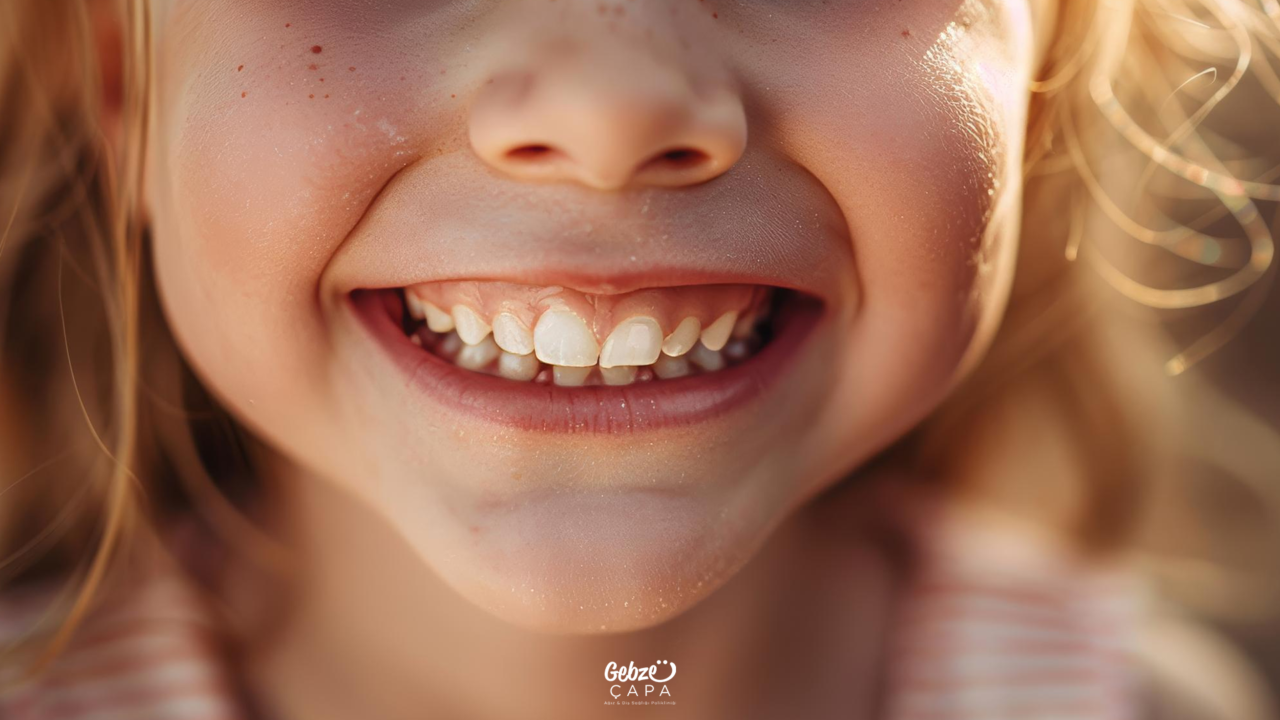When do milk teeth fall out?
Milk teeth are known as the first teeth in children’s lives and play a very critical role in the growth process. These teeth, 20 in total, begin to appear in infancy and are usually all in the mouth by the age of 3. In addition to making it easier for children to feed, milk teeth undertake the important task of preparing a suitable place for the permanent teeth that will emerge in the future.
These teeth are of great importance not only for nutrition, but also for the correct development of the jaw structure and the healthy development of children’s speech abilities. Keeping baby teeth healthy is also very important in terms of preventing dental problems that may arise in the future and protecting the child’s general oral health.
When do milk teeth fall out?
The process of shedding milk teeth represents an important stage in children’s growth phase and usually begins around the age of 6-7. However, this process may progress at different speeds in each child; Some children start losing their baby teeth before they are 5 years old, while others can wait until they are 8 years old. The first teeth to fall out are usually the lower front incisors. These teeth are followed by the upper front incisors, and over time, other teeth begin to fall out.
The order of loss of milk teeth generally proceeds parallel to the order of emergence; In other words, the first teeth to emerge are usually the first to fall out. For example, the lower front incisors are often the first teeth to erupt and therefore the first to fall out. This shedding process causes significant changes in the oral structure of children and is replaced by permanent teeth. The emergence of permanent teeth begins with the loss of milk teeth and usually continues until adolescence.

How to Lose Milk Teeth
The process of shedding of milk teeth begins when the permanent teeth coming from below put pressure on the roots of the milk teeth. This pressure dissolves the roots of baby teeth, causing the tooth to become loose and eventually fall out. After the milk teeth fall out, permanent teeth fill this gap and take a permanent place in the mouth.
Is the Loss of Milk Teeth a Healthy Process?
Loss of primary teeth is a natural and healthy part of the child’s growth process. It is of great importance for this process to occur correctly and on time for the child’s oral and dental health. Milk teeth not only help children feed, but are also essential for proper speech and the proper production of sounds. Milk teeth play a critical role in ensuring that children can pronounce words correctly and that their language development progresses in a healthy way.
In addition, milk teeth protect the space required for permanent teeth to emerge before they fall out. If milk teeth do not fall out in a healthy way or are lost early, this may lead to permanent teeth not settling properly, crowding and other orthodontic problems. Therefore, the healthy loss of milk teeth is not just a temporary event, but a vital process for the child’s general dental health and the smoothness of the tooth structure in the future.
Things to Consider During the Loss of Milk Teeth
Although the process of shedding milk teeth usually goes smoothly, there are important points to be careful about in some cases. For example, if a baby tooth does not fall out despite being loose for a long time, this may be a sign of an underlying problem and a dentist may need to be consulted. Failure of the tooth to fall out may prevent the permanent tooth below from emerging in the correct position, which may lead to orthodontic problems in the future.
Additionally, during the loss of milk teeth, symptoms such as pain, tenderness or swelling may occur in the child’s gums. Such symptoms may be due to the natural loss process of the tooth, or they may be a sign of infection or gum disease. It is important to consult a specialist without delay, especially if there is significant redness, swelling or persistent pain in the gums.

When does a new one replace a lost milk tooth?
Permanent teeth begin to appear after the baby teeth fall out, and the first permanent teeth usually appear between the ages of 6 and 7. This process continues until adolescence, and it is generally expected that all permanent teeth will be replaced in the mouth by the age of 13. However, in some cases, third molars, or wisdom teeth, that appear between the ages of 17 and 25, can prolong this process.
The emergence of permanent teeth is a critical period for children’s oral and dental health. During this period, it is very important for children to acquire the habit of regular brushing and flossing. Considering that permanent teeth are teeth that will be used throughout life, proper care is required to keep these teeth healthy. Good oral hygiene habits acquired during childhood not only prevent tooth decay and gum disease, but also prevent more serious dental problems in later years.
Failure to replace milk teeth
After the loss of milk teeth, permanent teeth are expected to replace them, but in some cases, this process does not proceed normally and a new tooth may not emerge after the loss of the milk tooth. This condition is called “missing teeth” or “tooth agenesis” and is usually caused by genetic factors. Tooth agenesis is a rare condition that children may encounter during the growth process and needs to be carefully monitored by dentists.
Missing teeth can occur in the form of a single tooth missing, or in cases where more than one tooth is missing. The most common deficiency is observed in the upper lateral incisors and lower second premolars. In addition to aesthetic problems, this condition can also affect chewing and speech functions. If the space where the milk tooth falls is not filled for a long time, the surrounding teeth may slide into this space and cause deterioration in the jaw structure. This may require the child to receive orthodontic treatment at a later age.



